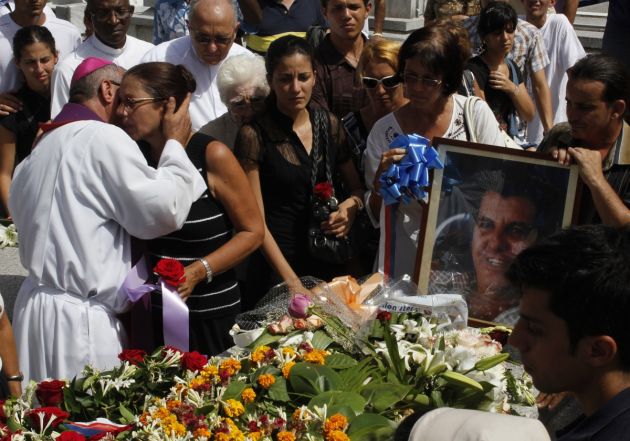US joins call for investigation into Oswaldo Payá's death in Cuba

The U.S. ambassador to the United Nations, Samantha Power, has called for an investigation into the death Oswaldo Payá, the founder of the Christian Liberation Movement in Cuba last year.
Citing diplomatic sources, Catholic News Agency reported that Powers spoke with the Cuban chancellor, Bruno Rodriguez, during a lunch hosted Tuesday by Argentine President Cristina Fernandez for the delegations that took part in the U.N. Security Council debate.
Power tweeted Tuesday: "Oswaldo Payá stood up for freedom. Just raised with the Cuban FM the need for a credible investigation into his death."
Cuba and the United States do not have diplomatic relations which were broken off in 1959 at the time of the revolution that brought communist leader Fidel Castro to power. Their diplomatic representatives can, however, make contact at the U.N. as both countries are members.
On the first anniversary of the suspicious death Payá, more than 100 world leaders, organizers, and activists including Nobel Peace Prize laureate Archbishop Emeritus Desmond Tutu had called for the U.N. to open an investigation into how he died.
The advocacy group U.N. Watch announced on July 22 that 125 global leaders called on U.N. Secretary General Ban Ki-moon and Human Rights Commissioner Navi Pillay, along with all 193 member nations, to support an international investigation into Payá's death in a July 2012 car crash in Granma Province.
At the time of the crash, the Cuban government's International Press Center released a statement saying that the driver of Payá's car had lost control and hit a tree.
But members of his family and other witnesses asserted that the car was rammed a number of times by another vehicle and driven off the road.
Payá, a Roman Catholic, founded the Christian Liberation Movement, known by its Spanish acronym MCL (Movimiento Cristiano Liberación) in 1988 along with a group of secular Catholics from Havana's Cerro parish.
"Mounting and credible allegations that the Cuban government may have been complicit in the murder of its most prominent critic, a leading figure in the human rights world, cannot go ignored by the international community," reads the letter signed by the world leaders and Tutu along with European Parliament Vice President Edward McMillan-Scott
Rosa Maria Payá, the daughter of the Christian Liberation Movement founder, had in February at a Geneva human rights summit hosted by U.N. Watch called for an international inquiry into her father's death.
"My father and a young friend gave their lives for freedom. My family and our movement do not believe their deaths were accidental.
"My father got many death threats in his life which increased in the last month of his life. We got information that his car was hit by another car. We want an impartial international investigation into their death," Rosa Maria Payá said in Geneva.
In June, Paya's daughter said that after threats and intimidation she had decided to seek refuge in Miami.
